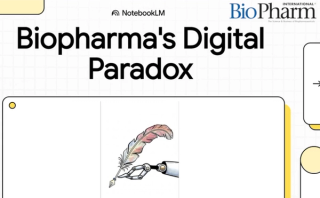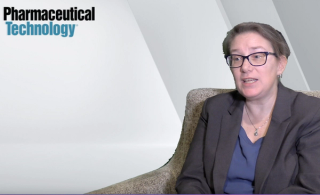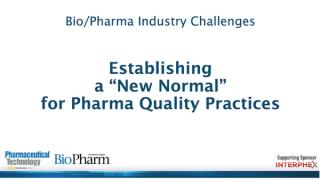
Regulatory/GMP Compliance
Latest News
Latest Videos
More News

The 100% tariff on imported drugs will pressure biopharma companies to build manufacturing sites in the US or face significant costs.

Optimizing FDA 483 responses with strategic CAPA creates resilient quality compliance in biopharma manufacturing.

Eli Lilly and Company developed an innovative and sustainable approach to audit trail review (ATR) aimed at reducing the ATR burden while adhering to regulatory expectations and data integrity (DI) principles. The process has transformed employees' understanding of ATR and complemented the DI by design approach, leading to better system designs that meet expected controls and reduce non-value-added data reviews.

ElevateBio BaseCamp Achieves First Multi-Modality ICMC Certification in Commercial CGT Manufacturing
Third-party ICMC certification verifies multi-modality manufacturing readiness, meeting US and EU standards for advanced genetic therapies.

Following an overhaul at ACIP, the HHS secretary took the advice of the committee’s new members, saying he was acting on guidance that dated back to 1999.

The agency’s newly issued letter to Sanofi amends one sent in December 2024, and stems from inspections at its Massachusetts drug manufacturing facility in June and July 2024.

With so many personnel involved in the development and manufacture of pharmaceuticals, proper training of all staff is key to ensuring a quality product.

EXO Biologics and its subsidiary, ExoXpert, have received GMP certification of a European exosomes manufacturing facility and have successfully loaded mRNA and DNA payloads into GMP-grade exosomes for drug delivery.

Diversity Action Plans are now required to be submitted by medical product sponsors after changes governed by the Food and Drug Omnibus Reform Act.

This alert follows a similar one from the European Medicines Agency in October 2023 amid a rise in demand for the diabetes medication that, in turn, created a shortage.

Determining E&L risk from single-use components can be used to build the level of extractable profiling and PERLs.

CGT Catapult and CATTI have developed aligned training standards for the manufacture of advanced therapies.

A new draft guidance issued by FDA covers human- and animal-derived materials used in the manufacture of advanced therapy medicinal products.

The new draft guidance from FDA provides recommendations for sponsor companies on cell safety testing of human-origin allogeneic cells.

Shanghai Henlius Biotech’s first biosimilar has previously received approvals by the European Commission and National Medical Products Administration.

The approval, given across three indications, follows a previous approval for second-line use in esophageal squamous cell carcinoma.

At INTERPHEX 2024, a panel of experts gave insight on new regulatory requirements for contamination control and provided advice for how to implement a contamination control strategy in existing facilities.

At INTERPHEX 2024, Susan Schniepp, distinguished fellow, Regulatory Compliance Associates, and co-chair of board of directors, Parenteral Drug Association, explores the impact of QMS on quality maturity.

Former FDA drug investigator, Daniel Roberts, discusses the importance of updating process validation and maintaining proper data integrity at a keynote session during INTERPHEX.

Compliance can be greatly improved by concentrating on the basic elements of CAPA investigations, advises Kate Rice, global quality systems manager, Nelson Laboratories, and Susan J. Schniepp, distinguished fellow, Regulatory Compliance Associates.

FDA published the draft guidance to support sponsors in developing treatments for the states of sporadic Alzheimer’s disease.

The digital transformation of quality-by-design assessment workflows can improve efficiency, reduce human errors, and facilitate integration within a much broader digital ecosystem.

Understanding how to apply phase-appropriate GMPs is crucial for achieving successful regulatory approval.

Steffen Thirstrup, chief medical officer, EMA, emphasizes the importance of transparency in investigating potential safety issues of CAR-T therapies, while highlighting the need to balance regulatory diligence with maintaining trust within the community and among stakeholders.

Steffen Thirstrup, chief medical officer of the EMA, discusses manufacturing supply, drug shortages, commercial incentives, politics, and patient wellbeing.














